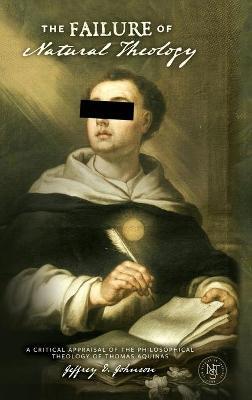The Failure of Natural Theology: A Critical Appraisal of the Philosophical Theology of Thomas Aquinas

The Failure of Natural Theology: A Critical Appraisal of the Philosophical Theology of Thomas Aquinas
Aristotle's cosmological argument is the foundation of Aquinas's doctrine of God. For Thomas, the cosmological argument not only speaks of God's existence but also of God's nature. By learning that the unmoved mover is behind all moving objects, we learn something true about the essence of God-principally, that God is immobile. But therein lies the problem for Thomas. The Catholic Church had already condemned Aristotle's unmoved mover because, according to Aristotle, the unmoved mover is unable to be the moving cause (i.e., Creator) and governor of the universe-or else he would cease to be immobile. By seeking to baptize Aristotle into the Catholic Church, however, Thomas gave his life to seeking to explain how God can be both immobile and the moving cause of the universe. Thomas even looked to the pantheistic philosophy of Pseudo-Dionysius for help. But even with Dionysius's aid, Thomas failed to reconcile the god of Aristotle with the Trinitarian God of the Bible. If Thomas would have rejected the natural theology of Aristotle by placing the doctrine of the Trinity, which is known only by divine revelation, at the foundation of his knowledge of God, he would have rid himself of the irresolvable tension that permeates his philosophical theology. Thomas could have realized that the Trinity alone allows for God to be the only self-moving being-because the Trinity is the only being not moved by anything outside himself but freely capable of creating and controlling contingent things in motion.
PRP: 247.59 Lei
Acesta este Prețul Recomandat de Producător. Prețul de vânzare al produsului este afișat mai jos.
222.83Lei
222.83Lei
247.59 LeiLivrare in 2-4 saptamani
Descrierea produsului
Aristotle's cosmological argument is the foundation of Aquinas's doctrine of God. For Thomas, the cosmological argument not only speaks of God's existence but also of God's nature. By learning that the unmoved mover is behind all moving objects, we learn something true about the essence of God-principally, that God is immobile. But therein lies the problem for Thomas. The Catholic Church had already condemned Aristotle's unmoved mover because, according to Aristotle, the unmoved mover is unable to be the moving cause (i.e., Creator) and governor of the universe-or else he would cease to be immobile. By seeking to baptize Aristotle into the Catholic Church, however, Thomas gave his life to seeking to explain how God can be both immobile and the moving cause of the universe. Thomas even looked to the pantheistic philosophy of Pseudo-Dionysius for help. But even with Dionysius's aid, Thomas failed to reconcile the god of Aristotle with the Trinitarian God of the Bible. If Thomas would have rejected the natural theology of Aristotle by placing the doctrine of the Trinity, which is known only by divine revelation, at the foundation of his knowledge of God, he would have rid himself of the irresolvable tension that permeates his philosophical theology. Thomas could have realized that the Trinity alone allows for God to be the only self-moving being-because the Trinity is the only being not moved by anything outside himself but freely capable of creating and controlling contingent things in motion.
Detaliile produsului










